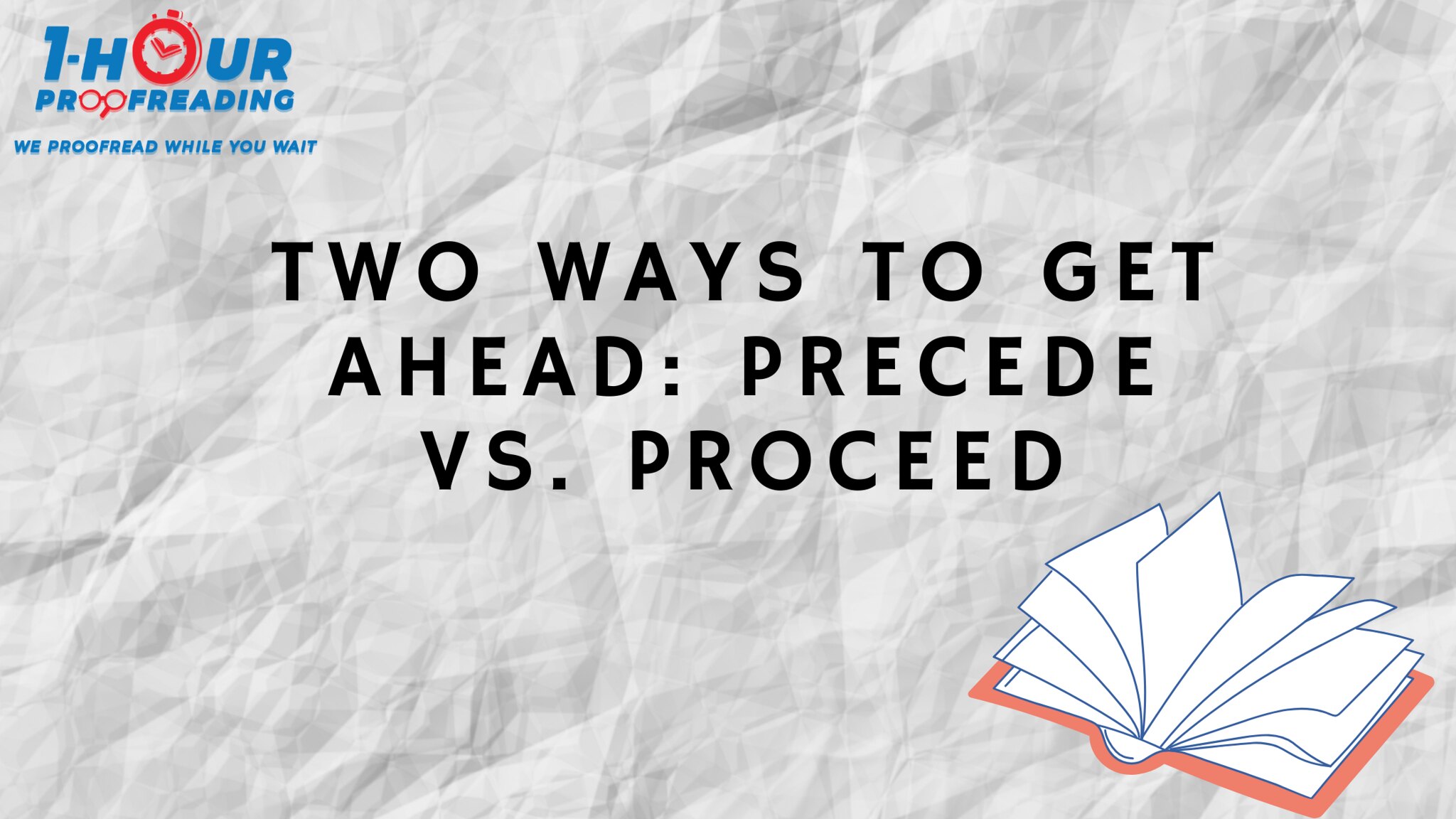Two Ways to Get Ahead: Precede vs. Proceed
Posted on Jun 01, 2021
Participating in a string of events is all fun and games until somebody mixes up the uses of “proceed” and “precede.” Do you continue with the event, or is the event happening before this other function that your friend invited you to? Recognizing the distinction between these two verbs is the difference between a successful day of parties and networking and consistent apologizing for being late.

Proceed and precede tend to cause confusion because of their similar sounds and, in some cases, their similar meanings. They both mean “go ahead,” but in different senses of being “ahead.” This likeness comes from sharing the Latin root word cedere, which means “to go.” Their difference lies in their similar-sounding prefixes.

Pro means “forward,” so to proceed means to “go forward”—to go ahead. This can mean literally moving forward along a path or course. It can also be used to begin a plan or action, such as proceeding with the meeting. If the said meeting is interrupted by the ill-timed ringing of someone’s phone, proceed can also be used to resume the meeting. Another use of proceed, albeit more uncommon, is to indicate something “coming forth from a source,” as in yellowish water proceeding from cracks on the wall.

Precede, on the other hand, is distinguished by its prefix pre (from the Latin prae) meaning “before.” The word refers to going right before something, as in arriving ahead of them. That person who is always early at the party? They precede everyone else. In the case of time, a preceding event means it is happening before something else. Precede can also be used to refer to someone being of a higher rank, such as the champion preceding the first runner-up.
Here are a few examples to further demonstrate the uses of “proceed” and “precede”:
The gatekeeper stepped aside and motioned his hands toward the portal before telling me to proceed.
The guide walks fast in front of the line, making sure that he precedes the tourists who do not know where they are going.
Blue light proceeded from the open door at the end of the hall.
If we go by the calendar strictly, New Year precedes Christmas.
Lisa proceeded with the meeting despite Harriett asking her to wait for three more minutes.
Before she was demoted to supervisor, Harriett preceded Lisa and Tom as the general manager for technology.
While these two verbs both refer to going ahead, proceed refers more to the physical sense of being ahead, as going forward on a path. Precede focuses on the time aspect of being ahead as in being earlier. If all else fails, just remember the meanings of the prefixes “pro-” and “pre-.”
That should be everything you need to master these two words. Proceed with confidence, but should you make a mistake, remember that error precedes learning. If you have other questions about grammar and language, feel free to send us a message and we will get back to you as soon as we can.
Sources:
- Precede vs. Proceed: What’s the Difference?
- Definition of Proceed by Merriam-Webster
- Definition of Precede by Merriam-Webster
About 1-Hour Proofreading
1-Hour Proofreading is a growing start-up offering fast and efficient editorial services. Our team of highly competent and professional copy editors is committed to helping those in need of quality proofreading and copyediting services while facing tight deadlines. We ensure that your document is ready for publishing the soonest you need it.
Visit onehourproofreading.com for more details.
Follow us:
Back to Grammary



